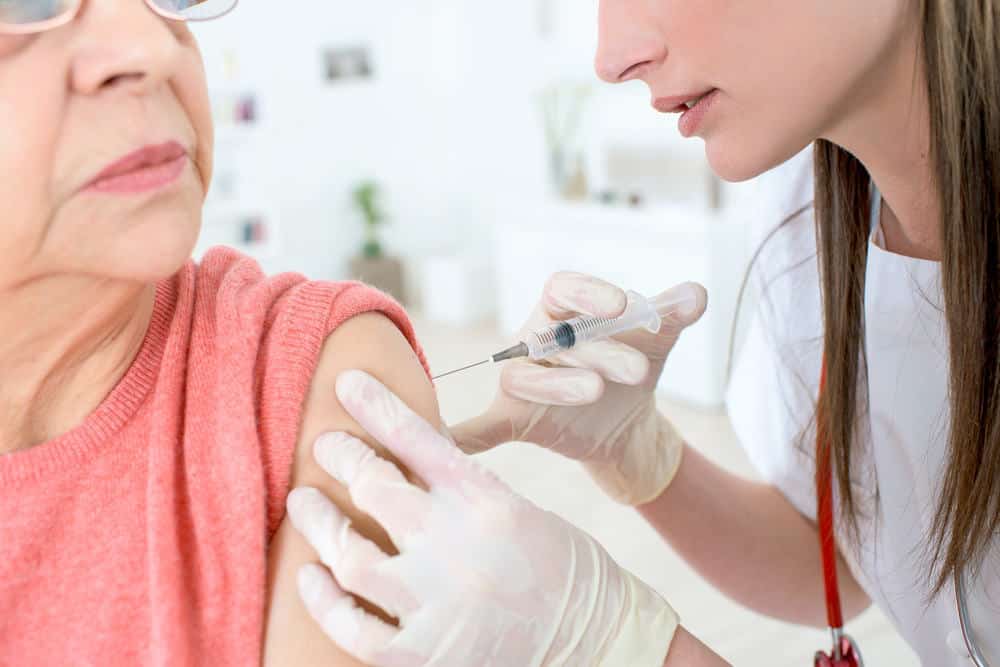Contents:
- Medical Video: 8 Signs Of High Blood Sugar Levels
- The cause of hyperinsulinemia is insulin resistance
- What are the symptoms?
- How does this condition affect my health?
- How do you deal with this condition?
Medical Video: 8 Signs Of High Blood Sugar Levels
Insulin is a hormone produced naturally by the pancreas to help stabilize blood sugar levels. Well, hyperinsulinemia is a condition that occurs when the pancreas produces excessive amounts of insulin.
Hyperinsulinemia is one symptom of type 2 diabetes. However, people who experience hyperinsulinemia do not mean they must have diabetes. Find out more here.
The cause of hyperinsulinemia is insulin resistance
Hyperinsulinemia is often associated with diabetes because these two conditions are caused by the same thing, namely insulin resistance.
Insulin resistance itself is a condition of the body that cannot respond to insulin properly. As a result, blood sugar (glucose) accumulates too much in the body. Because your pancreas cannot balance the amount of insulin your body needs to keep blood sugar stable, insulin resistance can cause type 2 diabetes.
The less common cause of hyperinsulinemia is insulinoma and nesidioblastosis. Insulinoma is a rare tumor in pancreatic cells that produces insulin. While nesidioblastosis is a condition when the pancreas produces too many cells that make insulin.
This condition can also occur after gastric bypass surgery. Some other causes include:
- Genetics
- Have a history of hypertension (high blood pressure) in the family.
What are the symptoms?
Often this condition does not give rise to clear signs. However, several possible signs and symptoms of hyperinsulinemia are:
- Unusual weight gain.
- Sugar cravings, eyebrows want to eat sweet foods.
- Feel hungry fast
- Excessive hunger.
- Difficulty concentrating, so you don't focus on doing anything.
- Feel anxious or panic.
- Limp, lethargic, and not powerful.
How does this condition affect my health?
Excessive insulin in the blood causes an increased risk of inflammation in every organ of the body, which can eventually cause serious inflammation, such as Crohn's disease, rheumatoid arthritis, chronic fatigue syndrome, Alzheimer's and Parkinson's.
For diabetics, excessive blood sugar levels can also cause blood vessel damage and candida infections through your bloodstream.
Some other risks that may occur if you experience hyperinsulinemia are:
- High triglyceride levels
- High uric acid
- Hardening of the arteries (atherosclerosis)
- Weight increases without cause
- Hypertension
As mentioned above, hyperinsulinemia does not mean diabetes. However, the sooner this condition is diagnosed and treated, the lower your risk of getting prediabetes or type 2 diabetes.
How do you deal with this condition?
Your diabetes medication can help alleviate these symptoms. However, your condition may not improve if you have not overcome the root cause, namely insulin resistance due to metabolic disorders.
Remember, metabolic disorders are a combination of conditions:
- High bad cholesterol with high triglycerides
- High blood pressure
- Unhealthy lifestyle
- Obesity with fat deposits around organs and low muscle mass
In general, the various conditions above are caused because you rarely do physical activity, aka lazy motion. As a result, your muscle mass decreases and fat accumulates in the body. Not only that, a bad diet like too much sugar or fat can increase your risk of developing metabolic disorders.
Therefore, the best way to deal with this condition is to adopt a healthier diet such as consuming lots of fruit and vegetables, diligently exercising, and maybe taking medication regularly to control your blood sugar.












